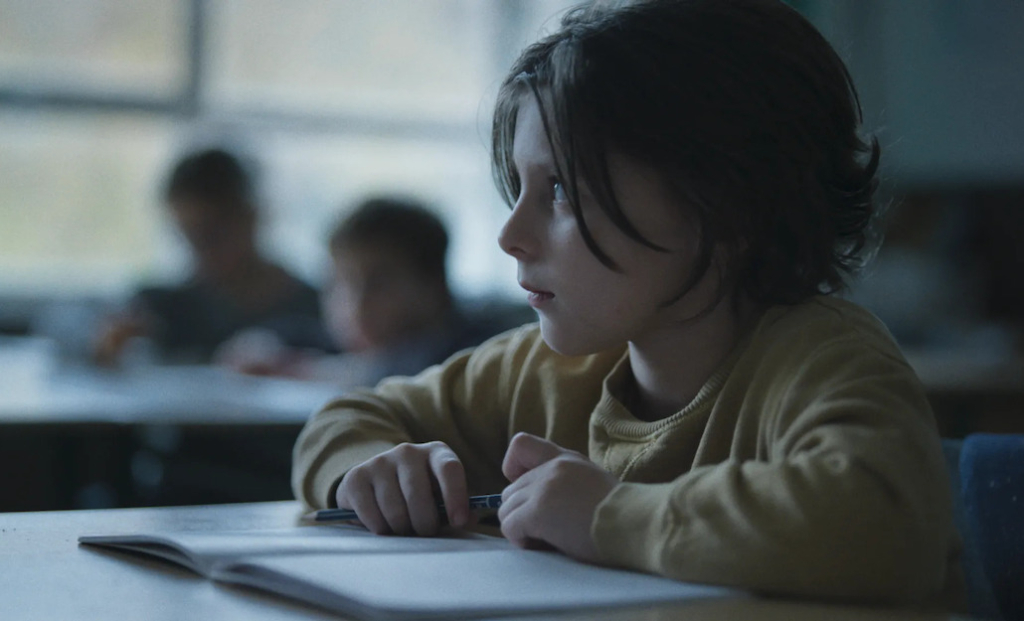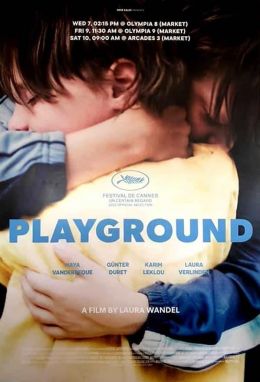Playground

What Playground‘s original French title, Un Monde (“a world”), alludes to is that school – everything that happens inside the classroom as well as during breaks – is a world of its own.
On her first day, Nora clutches at her older brother Abel, then at her father, terrified of being catapulted into this new environment. She is a sensitive child, reserved. Eventually she becomes friendly with some of her classmates, but her acceptance and her brother’s seem to work like a seesaw – each increasingly at the other’s expense.
Playground is a poignant portrait of the dynamics of fitting in and finding one’s place. There are powerfully naive pieces of dialogue from the students: a bizarre deduction of football players and racism, or the horrifying discrimination of Nora and Abel’s stay-at-home dad. It is clear that these children repeat things they hear at home, parrot-fashion. Unlike their male peers, the girls don’t throw physical punches, but their verbal ones are just as hard-hitting. There is a form of politics at play when it comes to birthday party invitations. The adults in this story are helpless bystanders to all the torment, promising help but turning their backs in the most crucial moments.
In her debut feature, Belgian director Laura Wandel analyses the fickle microcosm of schoolyards by framing her young protagonists at their eye level. The moving camera seems to react to the actors, never letting their emotional world or thought processes out of sight. There is calculation behind the carefully crafted shots, which on one or two occasions feel too choreographed. The synchronicity between the children’s body language and the cinematography robs the gifted prodigies of opportunities for spontaneity and rawness that could have made this film even more impactful.
Selina Sondermann
Playground is released digitally on demand on 22nd April 2022.
Watch the trailer for Playground here:
























Facebook
Twitter
Instagram
YouTube
RSS